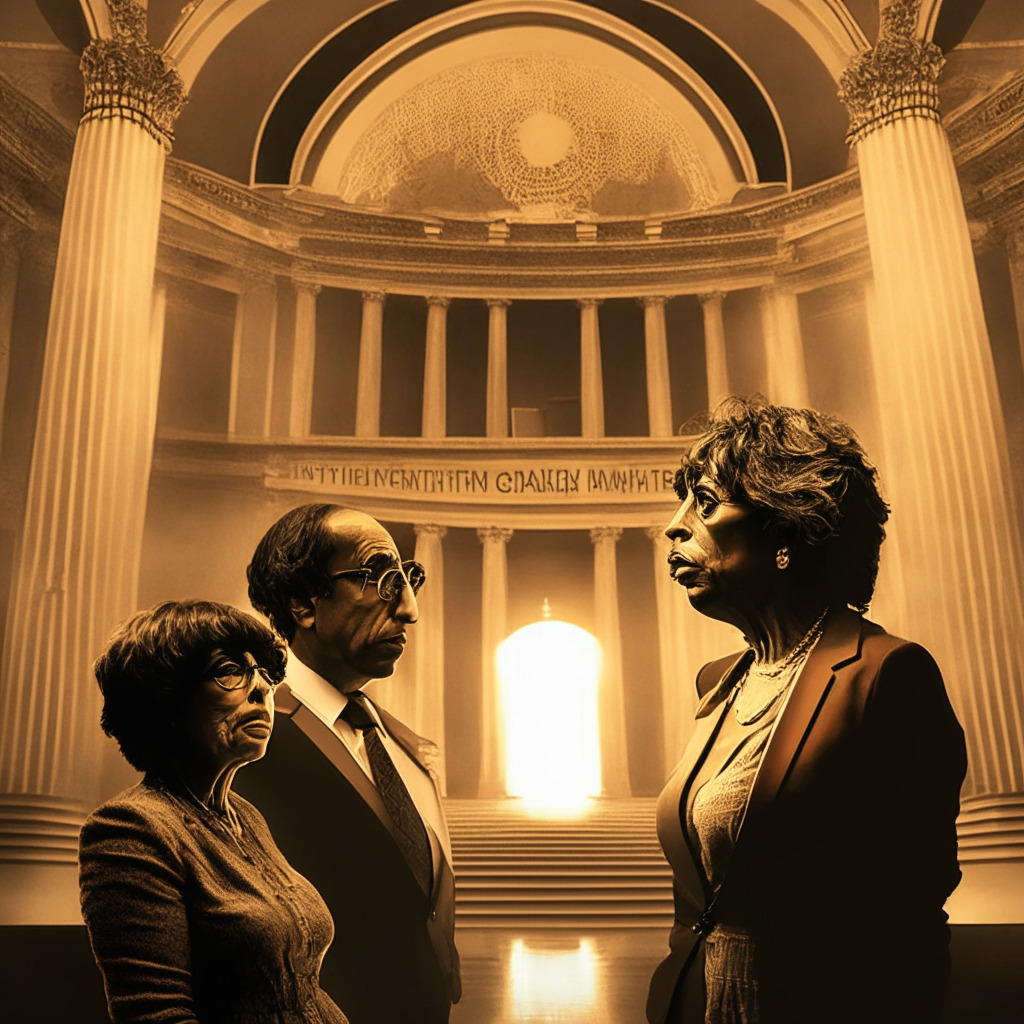In a significant move towards creating a comprehensive regulatory framework for cryptocurrencies, House Financial Services Committee Chair Maxine Waters (D-Calif.) recently reached out to regulators with a crypto-focused bill. The Digital Asset Market Structure proposal offers US-based digital asset exchanges a pathway for registering with the U.S. Securities and Exchange Commission (SEC).
In a letter dated June 23, Waters requested SEC Chairman Gary Gensler to explain how the proposal would impact the SEC’s existing authorities, including its mission to protect investors and maintain fair and efficient markets. A similar letter was sent to Treasury Secretary Janet Yellen, asking about the bill’s potential impact on the Treasury Department and its mission to promote economic prosperity and ensure the financial stability of the United States.
The proposed legislation, co-signed by Rep. Patrick McHenry (R-NC) and Rep. Glenn Thompson (R-Penn.), is considered the most significant crypto oversight proposal created in Congress this year. It aims to approve digital securities, commodities, and stablecoins for trading and provide guidelines to distinguish between crypto-based securities and commodities.
However, while this bill could bring greater regulatory clarity to the burgeoning crypto industry, it faces opposition from many within the Democratic Party. Critics argue that the legislation may hinder the SEC’s ability to protect investors and maintain fair markets.
On the other hand, the crypto industry has long demanded a clear regulatory framework in the United States. As it stands, companies operating within the sector face uncertainty and the potential risk of heavy enforcement actions, which can stifle innovation and dampen enthusiasm among investors.
Under Gensler’s leadership, the SEC has been proactive in its attempts to regulate the crypto market, issuing enforcement actions against major industry players, including Coinbase, Binance, Kraken, and Bittrex. While the proposed legislation may not necessarily diminish the SEC’s authority, it could help create more transparency on how digital assets are treated and reduce ambiguity about their legal status.
Waters’ request for responses from Gensler and Yellen demonstrates the mounting pressure on regulators to create a coherent policy framework for cryptocurrencies. The question remains whether this proposed legislation will gain enough support to become law or if alternative solutions will be found.
As the debate around the Digital Asset Market Structure proposal continues, the final outcome may prove crucial in shaping the future of the crypto industry and the role of government regulation in this rapidly evolving space. It’s now up to regulators like the SEC and the Treasury Department to determine if this legislation will provide the clarity that the market needs, and ensure investor protection and financial stability, without hindering innovation and growth.
Source: Coindesk




